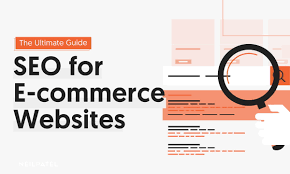Unlocking Success: Mastering Google Search SEO Strategies
The Power of Google Search SEO
In today’s digital age, having a strong online presence is crucial for businesses looking to succeed. With millions of websites competing for attention, it’s essential to ensure that your website stands out in search engine results. This is where Search Engine Optimization (SEO) comes into play, particularly when it comes to Google search.
What is Google Search SEO?
Google Search SEO involves optimizing your website to improve its visibility and ranking in Google’s search results. By following best practices and guidelines set by Google, you can increase the likelihood of your website appearing on the first page of search results for relevant keywords.
The Benefits of Google Search SEO
Optimizing your website for Google search offers numerous benefits, including:
- Increased Visibility: Higher rankings in search results mean more visibility for your website, leading to increased traffic and potential customers.
- Improved Credibility: Websites that appear at the top of search results are often perceived as more credible and trustworthy by users.
- Better User Experience: SEO practices not only benefit search engines but also enhance the user experience by making websites more accessible and user-friendly.
- Cost-Effective Marketing: Compared to traditional marketing methods, SEO is a cost-effective way to attract organic traffic to your website.
Key Elements of Google Search SEO
Effective Google Search SEO involves various key elements, such as:
- Keyword Research: Identifying relevant keywords that users are searching for and incorporating them strategically into your website content.
- On-Page Optimization: Optimizing meta tags, headings, images, and content on individual web pages to improve their visibility in search results.
- Link Building: Acquiring quality backlinks from reputable websites to enhance your website’s authority and credibility.
- User Experience: Creating a seamless user experience by ensuring fast loading times, mobile responsiveness, and easy navigation.
- Analytics Monitoring: Tracking and analysing key metrics to measure the effectiveness of your SEO efforts and make data-driven decisions.
In Conclusion
In conclusion, Google Search SEO plays a vital role in helping businesses improve their online visibility, attract more traffic, and ultimately grow their business. By implementing effective SEO strategies tailored to Google’s algorithms, you can position your website for success in the competitive online landscape.
22 Common Questions About Google Search and SEO Explained
- What does SEO do to your search?
- Can I do my own Google SEO?
- Is Google Search same as SEO?
- How do I write SEO for Google?
- What is the difference between search and SEO?
- What is SEO in Google?
- How do I get SEO on my Google site?
- What is SEO in Google Search?
- What are the 5 types of SEO?
- Does Google have SEO services?
- What are the 3 types of SEO?
- How can I become Google SEO?
- How to do SEO on Google?
- What is SEO in search?
- How do I create a Google SEO?
- What is search in SEO?
- Does Google provide SEO?
- How can I do Google SEO?
- Is SEO better than Google ads?
- What are the 4 stages of SEO?
- How to do SEO on a Google site?
- What are the 4 types of SEO?
What does SEO do to your search?
When it comes to the frequently asked question “What does SEO do to your search?” in the realm of Google Search SEO, it’s essential to understand that Search Engine Optimization (SEO) plays a pivotal role in enhancing the visibility and ranking of your website in search results. By implementing SEO strategies such as keyword optimization, content creation, and link building, you can improve your website’s chances of appearing higher in search engine results pages. Ultimately, SEO helps to attract more organic traffic to your website, increase brand visibility, and drive conversions by ensuring that your website is easily discoverable by users searching for relevant information or products/services.
Can I do my own Google SEO?
When it comes to the frequently asked question “Can I do my own Google SEO?”, the answer is yes, you can certainly attempt to do your own SEO for your website. However, it’s important to understand that effective SEO requires a deep understanding of Google’s algorithms, best practices, and ongoing changes in the digital landscape. While there are plenty of resources available online to guide you through the basics of SEO, achieving significant results often requires expertise and experience in the field. Working with professional SEO specialists can help ensure that your website is optimised effectively and stays competitive in search engine rankings.
Is Google Search same as SEO?
When users frequently ask whether Google Search is the same as SEO, it’s important to clarify that they are distinct but interconnected concepts. Google Search refers to the search engine itself, while SEO (Search Engine Optimization) encompasses the strategies and practices used to improve a website’s visibility and ranking in search engine results, including Google Search. SEO involves techniques such as keyword research, on-page optimization, link building, and user experience enhancements to enhance a website’s chances of appearing prominently in search results. Understanding this distinction is crucial for businesses looking to leverage both Google Search and SEO effectively to enhance their online presence and reach their target audience.
How do I write SEO for Google?
When it comes to writing SEO content for Google, it is essential to focus on creating high-quality, relevant, and engaging content that aligns with the search intent of users. Start by conducting thorough keyword research to identify the terms and phrases your target audience is searching for. Incorporate these keywords naturally throughout your content, including in headings, meta tags, and body text. Structure your content in a logical manner with clear headings and subheadings to improve readability and user experience. Additionally, ensure your website is technically optimized for search engines by using proper HTML tags, optimizing images with descriptive alt text, and improving site speed. By following these best practices and staying up-to-date with Google’s algorithm changes, you can enhance your chances of ranking well in Google search results.
What is the difference between search and SEO?
When it comes to understanding the difference between search and SEO, it’s essential to recognise that ‘search’ refers to the act of using search engines like Google to find information, products, or services online. On the other hand, ‘SEO’ stands for Search Engine Optimization, which is the practice of optimising websites to improve their visibility and ranking in search engine results pages. In essence, while ‘search’ is the action of looking for something online, ‘SEO’ involves strategic techniques aimed at enhancing a website’s presence in search results through factors like keywords, content quality, and user experience. By leveraging SEO effectively, businesses can increase their chances of being discovered by users searching for relevant information or offerings on the web.
What is SEO in Google?
When users search for “What is SEO in Google?” on the search engine, they are often seeking a clear understanding of Search Engine Optimization (SEO) specifically in the context of Google’s search algorithms and practices. SEO in Google refers to the process of optimising a website to improve its visibility and ranking in Google’s search results. By following SEO best practices, including keyword research, on-page optimization, and link building, website owners can enhance their online presence and attract more organic traffic from Google users. Understanding SEO in Google is essential for businesses looking to leverage the power of search engines to increase their online visibility and reach their target audience effectively.
How do I get SEO on my Google site?
To enhance SEO on your Google site, it is essential to focus on several key aspects. Firstly, ensure that your website content is relevant, high-quality, and tailored to target specific keywords that users are searching for. Optimise your meta tags, headings, and image alt text with relevant keywords to improve visibility in search results. Additionally, regularly update your content to keep it fresh and engaging for both users and search engines. Utilise Google Search Console to monitor your site’s performance, identify areas for improvement, and track keyword rankings. Lastly, building quality backlinks from reputable websites can further boost your site’s authority and credibility in the eyes of search engines like Google. By following these best practices and staying informed about SEO trends, you can effectively optimise your Google site for better search engine visibility and ranking.
What is SEO in Google Search?
SEO in Google Search refers to the practice of optimising a website to enhance its visibility and ranking in Google’s search results. It involves implementing various strategies and techniques, such as keyword research, on-page optimisation, link building, and user experience improvements, to improve a website’s chances of appearing higher in search engine results pages. By focusing on SEO in Google Search, businesses can attract more organic traffic, increase their online presence, and ultimately drive valuable leads and conversions. Understanding the fundamentals of SEO in Google Search is essential for businesses looking to succeed in the competitive digital landscape.
What are the 5 types of SEO?
When users search for “What are the 5 types of SEO?” on Google, they are likely seeking to understand the different categories of Search Engine Optimization (SEO) strategies. The five main types of SEO include technical SEO, on-page SEO, off-page SEO, local SEO, and mobile SEO. Technical SEO focuses on website structure and performance, while on-page SEO involves optimizing individual web pages for search engines. Off-page SEO pertains to activities outside the website that impact its ranking, such as link building. Local SEO targets geographically specific searches, and mobile SEO optimizes websites for mobile devices. Understanding these distinct types of SEO is crucial for businesses aiming to enhance their online visibility and attract organic traffic.
Does Google have SEO services?
When it comes to the frequently asked question “Does Google have SEO services?”, it’s important to clarify that Google itself does not offer SEO services in the traditional sense. While Google provides various tools and resources to help website owners improve their search engine visibility, such as Google Search Console and Webmaster Guidelines, it does not directly provide SEO services for individual websites. Instead, Google focuses on developing algorithms and technologies that determine search rankings based on factors like relevance, quality content, and user experience. Website owners can leverage Google’s tools and guidelines to enhance their SEO efforts and align with best practices for better visibility in Google search results.
What are the 3 types of SEO?
When users search for “What are the 3 types of SEO?” on Google, they are likely seeking clarification on the different approaches to Search Engine Optimization (SEO). The three main types of SEO commonly referred to are On-Page SEO, Off-Page SEO, and Technical SEO. On-Page SEO focuses on optimizing individual web pages to improve their search engine rankings, including content quality, keyword usage, and meta tags. Off-Page SEO involves building backlinks and establishing a website’s authority through external factors like social media shares and influencer collaborations. Technical SEO deals with the technical aspects of a website, such as site speed, mobile-friendliness, and structured data markup. Understanding these three types of SEO is essential for creating a comprehensive strategy to enhance a website’s visibility and performance in search engine results.
How can I become Google SEO?
To become proficient in Google SEO, individuals can start by gaining a deep understanding of search engine algorithms, keyword research, on-page and off-page optimization techniques, and the importance of user experience. It is essential to stay updated on Google’s latest guidelines and updates to adapt strategies accordingly. Engaging in practical experience through implementing SEO strategies on websites, analysing results, and continuously learning from industry experts can further enhance one’s skills as a Google SEO specialist. Building a strong portfolio of successful SEO projects and staying committed to ongoing learning and improvement are key steps towards becoming an accomplished Google SEO professional.
How to do SEO on Google?
When users search for “How to do SEO on Google?” on Google, they are often seeking guidance on optimizing their websites to improve visibility in Google search results. Implementing SEO on Google involves various strategies such as conducting keyword research, optimizing meta tags and content, building quality backlinks, and monitoring analytics. By following best practices and staying informed about Google’s algorithms and updates, website owners can enhance their online presence and increase their chances of ranking higher in Google search results. Effective SEO on Google requires a combination of technical expertise, creativity, and continuous refinement to ensure sustainable success in the ever-evolving digital landscape.
What is SEO in search?
When users search for “What is SEO in search?” on Google, they are likely seeking a clear understanding of the concept of Search Engine Optimization (SEO) and its role in improving website visibility in search engine results. SEO in search refers to the practice of optimizing websites to enhance their ranking and visibility on search engines like Google. By implementing various strategies such as keyword research, on-page optimization, and link building, businesses can increase their chances of appearing higher in search results for relevant queries. Understanding the importance of SEO in search is essential for businesses looking to attract organic traffic and reach their target audience effectively.
How do I create a Google SEO?
Creating a Google SEO strategy involves a series of essential steps to enhance your website’s visibility and ranking in Google search results. To create an effective Google SEO, you need to start by conducting thorough keyword research to identify relevant search terms that your target audience is using. Next, optimise your website’s on-page elements, such as meta tags, headings, and content, with these keywords to improve its relevance to search queries. Additionally, focus on building quality backlinks from reputable websites to boost your site’s authority. Regularly monitor and analyse your SEO performance using tools like Google Analytics to track progress and make necessary adjustments for ongoing improvement. By following these steps diligently and staying up-to-date with Google’s algorithms, you can create a successful Google SEO strategy that drives organic traffic to your website.
What is search in SEO?
In the realm of SEO, the concept of “search” holds significant importance. When we refer to “search” in SEO, we are talking about the process by which users seek information, products, or services through search engines like Google. Understanding how users search for content online is crucial for optimising websites to appear prominently in search engine results pages (SERPs). By analysing search trends, keywords, and user behaviour, SEO professionals can tailor their strategies to enhance a website’s visibility and relevance to target audiences. In essence, mastering the art of “search” in SEO involves aligning website content with user intent to attract organic traffic and improve overall online performance.
Does Google provide SEO?
When it comes to the frequently asked question, “Does Google provide SEO?” it’s important to clarify that Google itself does not offer SEO services to individual websites. Instead, Google provides guidelines and best practices for webmasters and SEO professionals to follow in order to improve their website’s visibility in search results. By adhering to these guidelines and focusing on creating high-quality, relevant content, websites can enhance their chances of ranking well in Google’s search results. Ultimately, while Google doesn’t directly provide SEO services, following their recommendations can significantly impact a website’s search engine performance.
How can I do Google SEO?
When it comes to the frequently asked question “How can I do Google SEO?”, mastering Google Search Engine Optimization (SEO) involves a combination of strategic approaches. To start, conducting thorough keyword research is essential to identify relevant search terms that your target audience uses. Optimizing your website’s on-page elements, such as meta tags, headings, and content, with these keywords is crucial for improving visibility in Google search results. Additionally, building high-quality backlinks from reputable websites and ensuring a seamless user experience are key factors in enhancing your website’s ranking on Google. Regularly monitoring analytics data and staying informed about algorithm updates are also vital to maintaining and improving your SEO efforts over time. By following best practices and staying up-to-date with the latest trends, you can effectively optimise your website for Google search and increase its online presence.
Is SEO better than Google ads?
When comparing SEO to Google Ads, it’s essential to consider the unique benefits each strategy offers. SEO focuses on improving organic search rankings over time, leading to sustainable long-term visibility and traffic growth. On the other hand, Google Ads provides immediate visibility through paid advertising, allowing businesses to target specific audiences with precision. While both SEO and Google Ads are valuable digital marketing tools, the choice between them often depends on factors such as budget, goals, and timeline. Ultimately, a well-rounded digital marketing strategy may combine both SEO and Google Ads to maximise online presence and reach.
What are the 4 stages of SEO?
When users search for “What are the 4 stages of SEO?” on Google, they are often seeking to understand the fundamental process of Search Engine Optimization. The four stages of SEO typically include keyword research and analysis, on-page optimization, off-page optimization (including link building), and monitoring and adjusting strategies based on analytics. Each stage plays a crucial role in enhancing website visibility, attracting organic traffic, and improving search engine rankings. By following these sequential stages diligently, website owners can effectively optimise their online presence and achieve sustainable results in the ever-evolving digital landscape.
How to do SEO on a Google site?
When it comes to doing SEO on a Google site, there are several key steps to consider in order to improve its visibility and ranking in search results. Firstly, ensure that your Google site is optimised with relevant keywords that users are likely to search for. Incorporate these keywords strategically in your site’s content, headings, and meta tags to signal its relevance to search engines. Additionally, focus on creating high-quality and engaging content that provides value to visitors. Utilise internal linking within your site to improve navigation and enhance the user experience. Regularly monitor your site’s performance using analytics tools to track progress and make necessary adjustments for ongoing SEO success on a Google site.
What are the 4 types of SEO?
When users search for “What are the 4 types of SEO?” on Google, they are often seeking clarification on the various categories of Search Engine Optimization (SEO) strategies. The four main types of SEO include On-Page SEO, Off-Page SEO, Technical SEO, and Local SEO. On-Page SEO focuses on optimizing individual web pages to improve their search engine rankings, while Off-Page SEO involves activities outside the website to enhance its authority and relevance. Technical SEO deals with backend elements like site speed and indexing, ensuring optimal performance. Lastly, Local SEO targets geographically specific searches to help businesses attract local customers effectively. Understanding these different types of SEO is essential for developing a comprehensive digital marketing strategy that boosts online visibility and drives organic traffic to websites.









